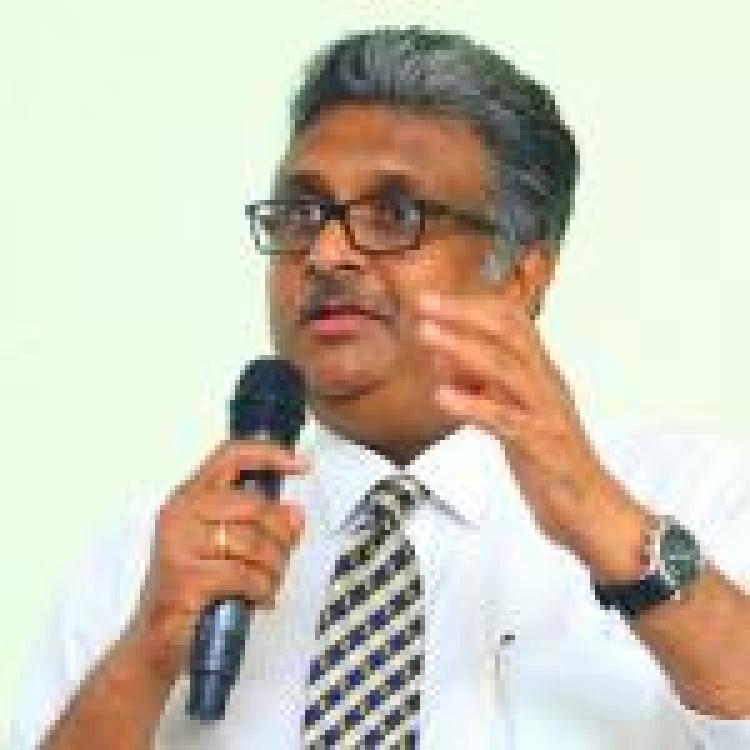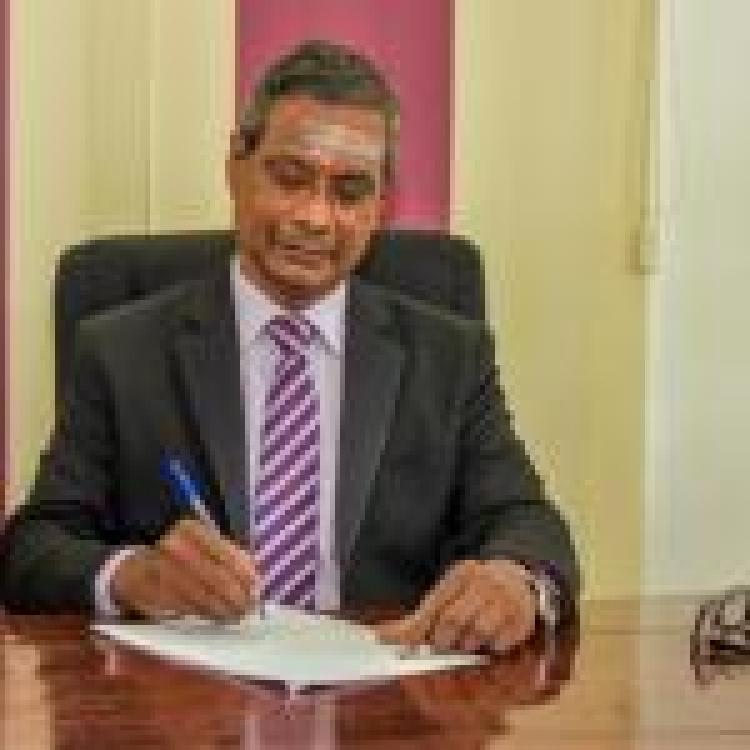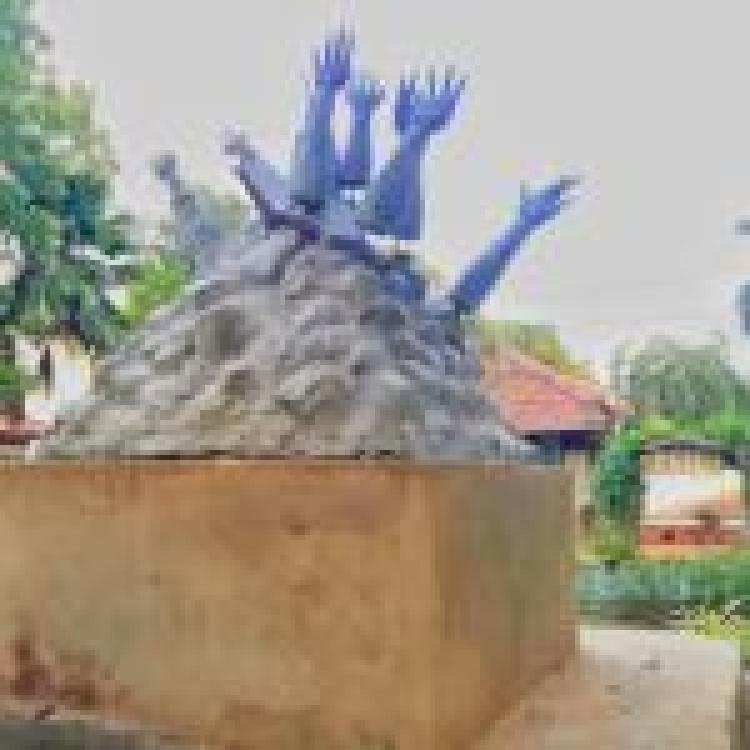
Sri Lankan security forces at the gates of Jaffna University on Friday night as Tamils protested against the destruction of a memorial monument.
Sri Lanka’s defence ministry and intelligence officials were amongst those pushing for the demolition of a monument dedicated to Tamils killed during the Mullivaikkal massacre, claimed the University of Jaffna Vice-Chancellor S Srisatkunarajah as outrage continued over the destruction on Saturday.
Srisatkunarajah, who initially slammed protestors outside the campus gates and warned they would be “dealt with”, claimed that the demolition of the Mullivaikkal memorial in the university campus ensured protection of older monuments.
He has since revealed that he faced pressure from Sri Lanka’s security forces over the monument, that had been unveiled in 2019 in remembrance of the tens of thousands of Tamils massacred in Mullivaikkal.
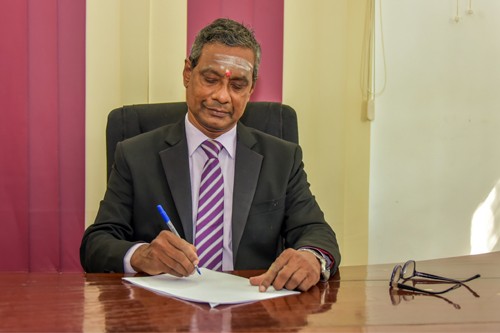
“Since then, authorities have been asking the university administration to remove the unauthorised structure,” Srisatkunarajah told The Hindu earlier today. “I received multiple instructions from higher authorities, and this was discussed at several meetings with the university’s capital works, engineering and maintenance departments.”
Srisatkunarajah went on to explain that the “higher authorities” were Sri Lanka’s “defence, intelligence, education ministry, everyone”.
“I am a civilian carrying out an administrative responsibility,” he continued. “Sometimes, I have to take decisions beyond my personal likes and dislike. So, I delegated the responsibility to the concerned departments about a month ago, giving no particular date. They have executed it, that is all.”
A history of military interference
Srisatkunarajah’s claim that Sri Lanka’s defence sector had exerted pressure on him follows a long pattern of military interference in the administration of the university.
When planning for the construction of the monument initially began in 2018, student union representatives reported they faced resistance from the Sri Lankan government, particularly from the University Grants Commission (UGC) and the Higher Education Ministry.
Construction, however, went ahead and in 2019 a year later, the monument was unveiled.
.jpeg)
The Mullivaikkal memorial at the university, before it was destroyed on Friday.
Amongst those involved in the construction of the memorial was one victim who lost his father in the massacres of 2009. Tens of thousands of Tamil civilians were killed by a Sri Lankan military offensive led by the Rajapaksas, that culminated on the beaches of Mullivaaikkal.
That same year the university would face more turmoil. Then Vice Chancellor Professor Ratnam Vigneswaran was already under increasing pressure from the UGC. Sri Lanka’s military intelligence had reportedly raised “national security” concerns about university student activities with the UGC, who in turn had requested a report from Vigneswaran about the Mullivaikkal memorial.
The Daily Mirror reported that military intelligence, as well as the commander of the army, had also complained to the UGC about the Pongu Tamil memorial at the Jaffna University campus. A monument commemorating the 2001 Pongu Tamil declaration and the nationalist uprising had been unveiled in 2018.
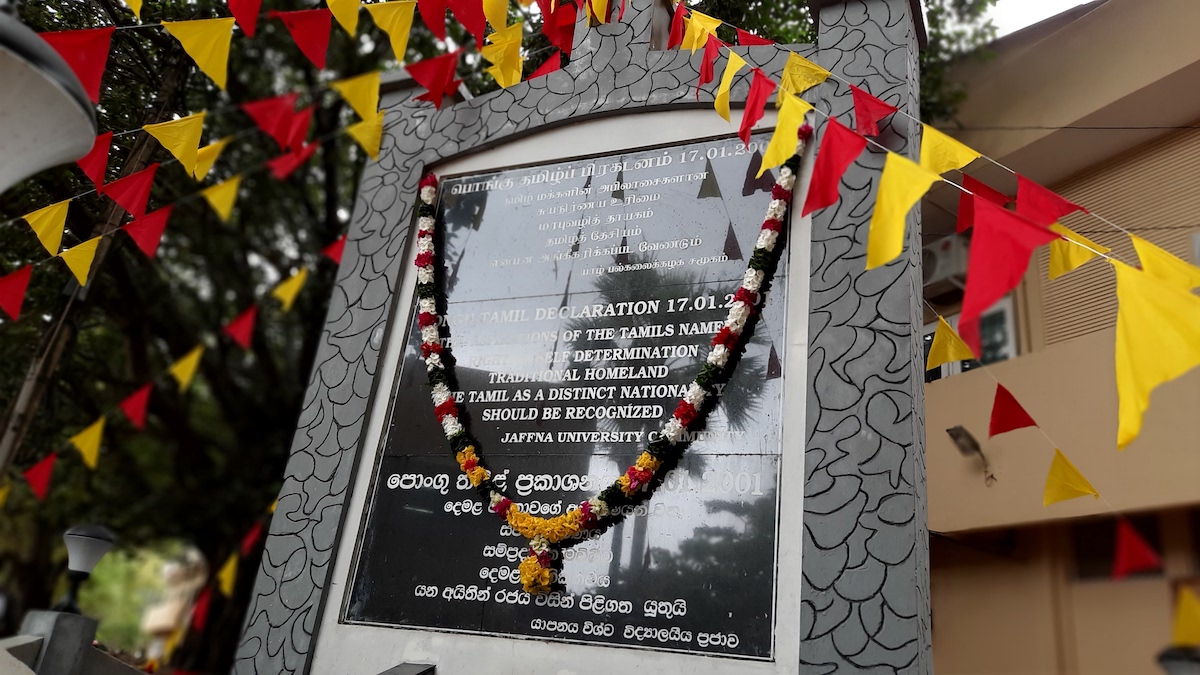
The Pongu Tamil memorial at the university.
None of these reports were shared with Vigneswaran, who was the Vice Chancellor at the time. Instead, just months later in May 2019, he was dismissed, reportedly on “national security” grounds. “According to the Constitution, the President has the sole authority for appointment and removal of Vice-Chancellors,” the University Grants Commission Chairman Prof. Mohan de Silva told the Daily News at the time.
Military pressure bars Jaffna University law head
Sri Lankan military pressure on the university administration would continue throughout the year. After Dr Kumaravadivel Guruparan, the head of Jaffna University’s law department, took up a public interest habeas corpus case into the 1996 disappearance of more than two dozen Tamil youth, the university barred him from engaging in private practice.
The ban drew outrage from around the world, with hundreds signing a statement condemning the ‘threats, harassment and reprisals’ against the prominent human rights lawyer and the international human rights organisation Front Line Defenders has issued an urgent appeal. The case was also highlighted by the US State Department’s 2019 Country Report on Human Rights Practices in Sri Lanka.
Yesterday, Dr Guruparan spoke out against the destruction of the monument.
“The previous VC was sacked because he didn't demolish the monument,” he tweeted. “I have concrete reasons to believe that one of the pre-conditions for appointment of the new VC by the incumbent President was demolition of this monument.”
The demolition has now sparked global outrage. Images of the destruction have been shared thousands of times across social media and politicians from around the world have spoken out against it.
As demonstrations continue in Jaffna this weekend, a group of students launched an indefinite hunger strike.

.JPG)
